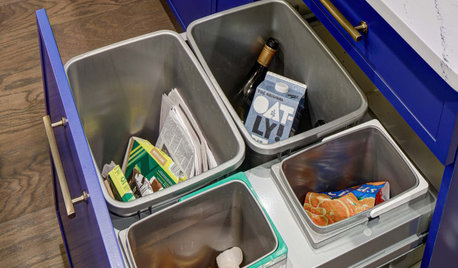Millions of fruit flies in my compost bin--is thi a problem?
scraplolly
15 years ago
Featured Answer
Sort by:Oldest
Comments (58)
scraplolly
15 years agolouisianagal
15 years agoscraplolly
15 years agowiteowl
15 years agodigdirt2
15 years agolisascenic Urban Gardener, Oakland CA
15 years agoscraplolly
15 years agolouisianagal
15 years agoKimmsr
15 years agogardenfanatic2003
15 years agoscraplolly
15 years agowigglie
15 years agopunkbass182_hotmail_com
15 years agosmokensqueal
15 years agoveryhh
8 years agolisanti07028
8 years agoveryhh
8 years agotoxcrusadr
8 years agokatepdx61
8 years agotoxcrusadr
8 years agokatepdx61
8 years agokimmq
8 years agokatepdx61
8 years agotoxcrusadr
8 years agokimmq
8 years agoshea8910
8 years agoJohn Donovan
8 years agotoxcrusadr
8 years agoshea8910
8 years agokimmq
8 years agotoxcrusadr
8 years agodrmbear
8 years agoBarbara Jaye
8 years agotoxcrusadr
8 years agoamydarrow
8 years agokimmq
8 years agoamydarrow
8 years agokdrummer10 kdrummer10
7 years agoCC
7 years agokimmq
7 years agolopa416
7 years agotoxcrusadr
7 years agoAnita Spencer
6 years agodrmbear Cherry
6 years agogilliannoble
5 years agotoxcrusadr
5 years agotoxcrusadr
5 years agoHU-13587114
5 years agoarmoured
5 years agotoxcrusadr
5 years ago
Related Stories

MOST POPULARHow to Get Rid of Those Pesky Summer Fruit Flies
Learn what fruit flies are, how to prevent them and how to get rid of them in your home
Full Story
GREEN BUILDINGWhere to Hide the Kitchen Compost Bin
Enriching your soil doesn’t have to mean staring at a countertop pile of decomposing food scraps
Full Story
GARDENING GUIDESHouzz TV: Make a Worm Bin for Rich Soil and Happy Plants
A worm-powered compost bin that can fit under a sink turns food scraps into a powerful amendment for your garden. Here’s how to make one
Full Story
GARDENING GUIDESGet on a Composting Kick (Hello, Free Fertilizer!)
Quit shelling out for pricey substitutes that aren’t even as good. Here’s how to give your soil the best while lightening your trash load
Full Story
KITCHEN STORAGEHow to Get Your Pullout Waste and Recycling Cabinets Right
Personalize your kitchen waste storage with the best bin configuration and pullout system
Full Story
EDIBLE GARDENSHow to Grow Your Own Sweet Summer Crops
This guide will help any gardener get started on growing the freshest warm-season veggies and berries for summer
Full Story
FARM YOUR YARDHow to Grow Vegetables in Containers
Get glorious vegetables and fruits on your patio with a pro’s guidance — including his personal recipe for potting mix
Full Story
LIFEThe Polite House: How to Deal With Noisy Neighbors
Before you fly off the handle, stop and think about the situation, and follow these steps to live in harmony
Full Story
GARDENING GUIDESHow to Keep Your Citrus Trees Well Fed and Healthy
Ripe for some citrus fertilizer know-how? This mini guide will help your lemon, orange and grapefruit trees flourish
Full Story
EDIBLE GARDENSSummer Crops: How to Grow Tomatoes
Plant tomato seedlings in spring for one of the best tastes of summer, fresh from your backyard
Full StoryMore Discussions






louisianagal